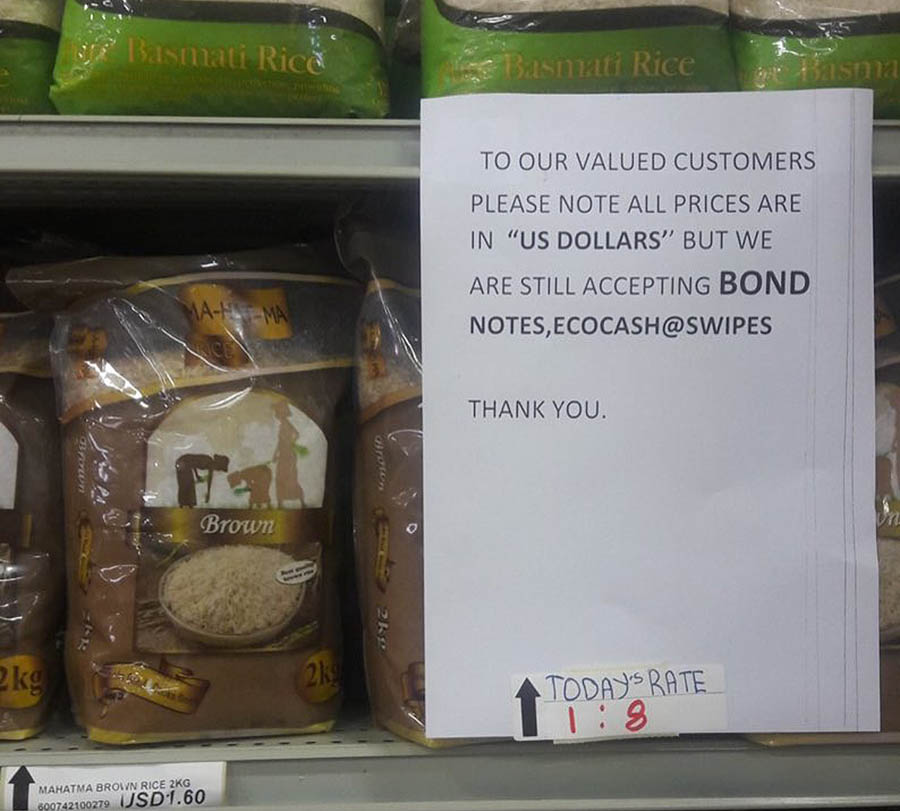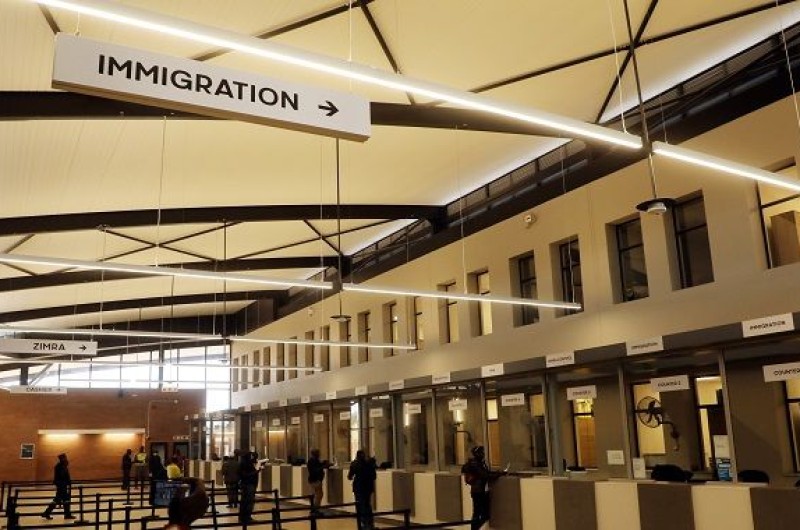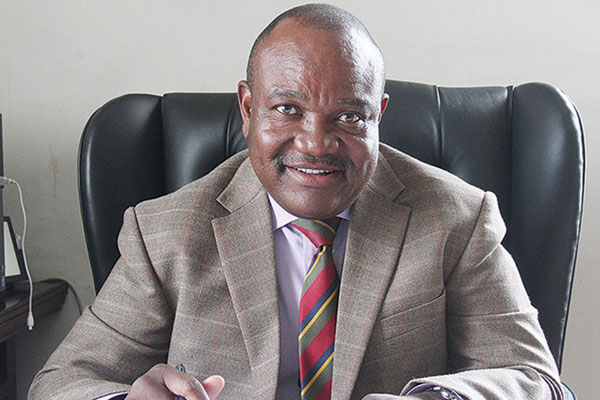HARARE – Zimbabwe government departments and state-owned enterprises have followed some private companies this week in setting prices in United States dollars – effectively abandoning the RTGS dollar currency introduced in February.
The Ministry of Agriculture and the National Railways of Zimbabwe issued circulars to clients stating that their prices will now be in United States dollars, although clients can also settle invoices using the prevailing interbank market rate of the day.
On Friday, Energy Minister Fortune Chasi said the Zimbabwe Electricity Transmission and Distribution Company (ZETDC) should accept foreign currency payments from mining companies to guarantee power supplies.
Rising prices and soaring inflation have seen a plunge in the value of the RTGS dollar, which was trading at 1:5.22 against the U.S. dollar on Friday but up to 7.9 on the parallel market.
The Department of Research and Specialist Services under the Ministry of Lands and Agriculture sent a notice to customers, stating: “Please be advised that charge of goods and services is now in United States dollars or the prevailing interbank rate with effect from 29/05/2019.”
Lewis Mukwanda, the National Railways of Zimbabwe general manager, has also written to their freight clients saying the “current unstable macro-economic environment has affected all organisations.”
“To this end, and in order to continue to sustain a reasonable service to industry and other consumers, we shall revert to the US$ rate that prevailed in October 2018. The freight rates may be paid either in hard currency or RTGS$ at the prevailing interbank rate at the time of processing the payment,” Mukwanda said.
Mining companies can pay for electricity in foreign currency to guarantee supplies, Chasi said on Friday, a day after he indicated there could be deeper power cuts in the country due to low dam water levels.
Chasi said on Thursday the country’s largest hydroelectric plant, Kariba Dam, will suspend output in 14 weeks if water levels continue to fall at the current rate.
ZETDC this month announced the worst rolling power cuts in three years, and although mines have been spared so far, analysts say the cuts will hurt economic revival efforts.
“Exporting mining firms can also enter into foreign currency payments arrangements with ZETDC on a back-to-back arrangement with regional utilities to enable the utility to secure more imports,” Chasi told mining executives at an annual meeting of the Chamber of Mines in Victoria Falls.
Former Finance Minister Tendai Biti said the only solution for the embattled government of President Emmerson Mnangagwa was to abandon the RTGS dollar and return to full dollarisation.
Biti said Friday: “The wheels have come off. Massive price hikes mean that inflation will jump to 500 percent this month. The parallel exchange rate will hit 1:9 in the next few days. There is a shortage of everything particularly fuel, drugs and electricity.
“It is imperative that the regime must simply re-dollarise to stem the meltdown. Anything else is a waste of time. Export surrender requirements must fall. Production must commence. Savings must be ring fenced and we must join the rand monetary union.”
Finance Minister Mthuli Ncube maintains that Zimbabwe needs a currency of its own “as an additional tool in our tool box to deal with macro-economic issues.”
In an exchange with Biti in Parliament on Wednesday, Ncube told MPs: “What happened when the US dollar was adopted (in 2009), basically as a de facto currency during the time that the Hon. Member was a Minister, what he did is he destroyed this country’s ability to conduct its own monetary policy completely.
“So, the central bank was taken out of all monetary policy ability and what was left was fiscal policy only. Those are the facts and I have said that from the beginning that we need both legs for macro-economic management, the fiscal and monetary policy legs.
“On the US$ we do meet challenges with transactions abroad and so forth… We have had situations where we have been refused supply of US$ into the economy by certain banks who are complying with the US sanctions. So, it is quite clear that we need to move towards having our own domestic unit account and the RTGS$ is the beginning of that. What is left now is for us to continue to fine tune the interbank market making it more efficient and also putting in place the micro institutions for making sure that monetary policy begins to work.”















